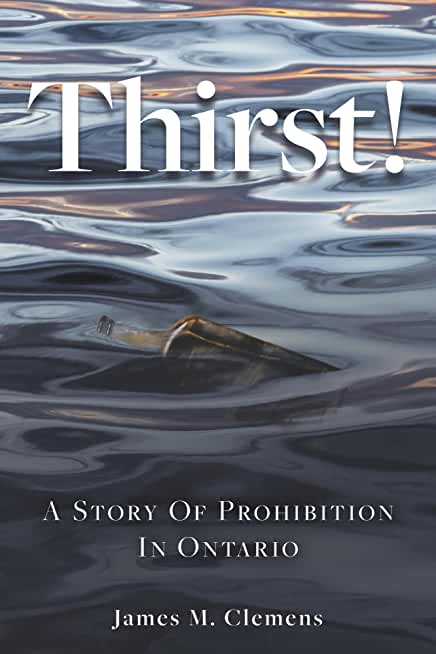
description
6Prohibition was the law of the land in both Ontario and the United States during the 1920s and 1930s. Yet because of the one key difference between Ontario's Temperance Act and America's Eighteenth Amendment, smugglers could make small fortunes transporting Ontario booze through the Great Lakes to harbours in America.
Thirst! A Story of Prohibition in Ontario relates the account of how one such smuggling ship, the doomed City of Dresden, ended capsized on a sand bar off the north shore of Lake Erie just west of Port Rowan, Ontario, in late November, 1922.
The author details how the local inhabitants handled the liquid cargo and how the prohibition authorities dealt with the local farmers. The use of reminiscences, historical excerpts from newspapers, and a one-hundred-page court record of the trials of the farmers, bring real-life characters to the page, giving readers a fascinating glimpse into the lives of farmers, bootleggers, and government enforcers at the heart of his story.
Thirst! also uses the story of the wreck of the Dresden as a springboard to explore some of the main themes related to prohibition: the solidarity of a community when threatened by outside forces; reactions to unpopular laws and those who enforce those laws; how greed can force people to take unnecessary risks; the rivalry between city and village, and the beginning of disillusionment with prohibition itself.
Readers having an interest in early twentieth century Ontario history, especially prohibition, and those familiar with Long Point and Lake Erie will find Thirst! A Story of Prohibition in Ontario an enjoyable and informative study.
Thirst! A Story of Prohibition in Ontario relates the account of how one such smuggling ship, the doomed City of Dresden, ended capsized on a sand bar off the north shore of Lake Erie just west of Port Rowan, Ontario, in late November, 1922.
The author details how the local inhabitants handled the liquid cargo and how the prohibition authorities dealt with the local farmers. The use of reminiscences, historical excerpts from newspapers, and a one-hundred-page court record of the trials of the farmers, bring real-life characters to the page, giving readers a fascinating glimpse into the lives of farmers, bootleggers, and government enforcers at the heart of his story.
Thirst! also uses the story of the wreck of the Dresden as a springboard to explore some of the main themes related to prohibition: the solidarity of a community when threatened by outside forces; reactions to unpopular laws and those who enforce those laws; how greed can force people to take unnecessary risks; the rivalry between city and village, and the beginning of disillusionment with prohibition itself.
Readers having an interest in early twentieth century Ontario history, especially prohibition, and those familiar with Long Point and Lake Erie will find Thirst! A Story of Prohibition in Ontario an enjoyable and informative study.
member goods
No member items were found under this heading.
listens & views

OVADOSE-LAID BACK PLATINUM UNDERGROUND / ...
by OVADOSE-LAID BACK PLATINUM UNDERGROUND / VARIOUS
COMPACT DISCout of stock
$5.75
Return Policy
All sales are final
Shipping
No special shipping considerations available.
Shipping fees determined at checkout.






